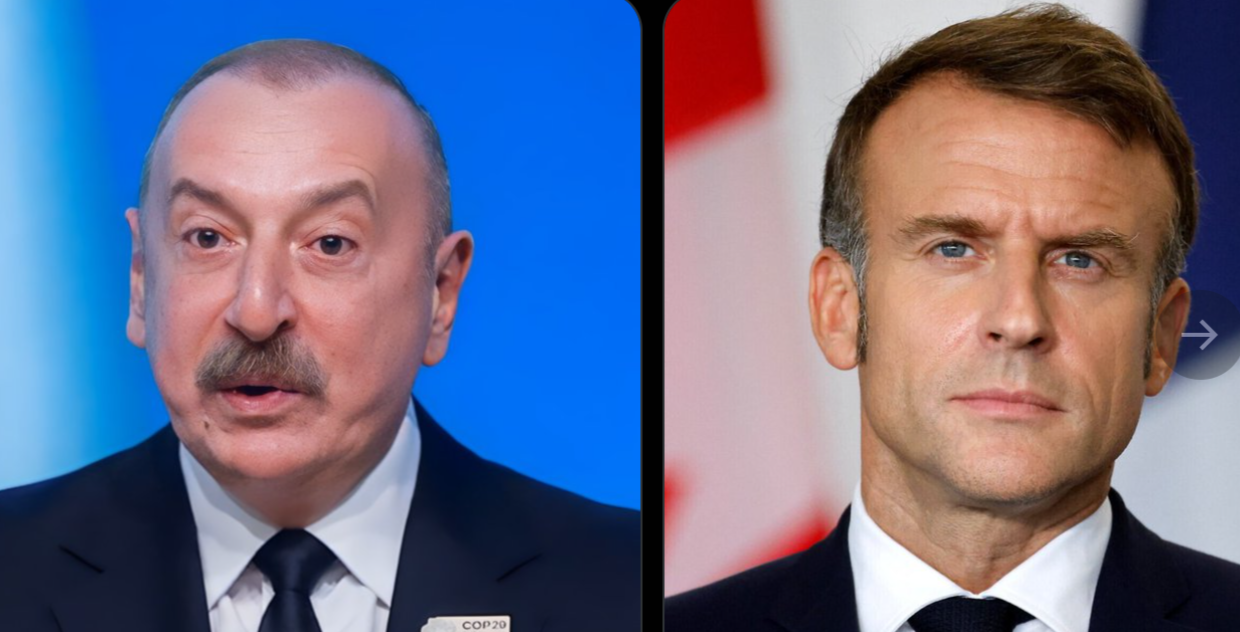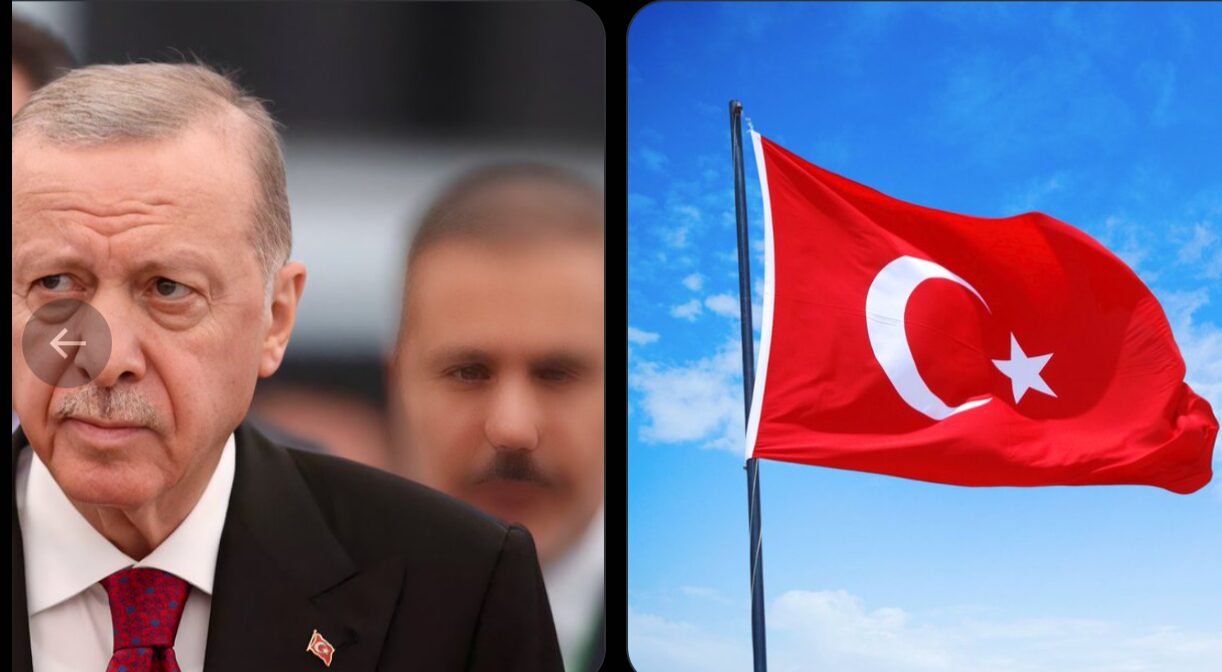Azerbaijani President Aliyev called French President Macron a “DICTATOR.”
In a tense diplomatic exchange that has captured global attention, Azerbaijani President Ilham Aliyev has publicly referred to French President Emmanuel Macron as a “dictator.” This unexpected remark has sparked outrage and debate on the international stage, as it touches on broader issues of political rhetoric, international relations, and the ongoing tensions between Azerbaijan and France. In this blog post, we will delve into the reasons behind Aliyev’s accusation, the historical context of relations between Azerbaijan and France, and the potential implications for both nations and their global standing.
The Context of the Remark: Why Did Aliyev Call Macron a “Dictator”?
The sharp rebuke from Azerbaijani President Aliyev came in the midst of growing tensions between Azerbaijan and France, particularly over the situation in Nagorno-Karabakh. The long-standing conflict between Azerbaijan and Armenia over the disputed Nagorno-Karabakh region has been a point of friction between the two countries, with France traditionally aligning more closely with Armenia.
France has been a vocal critic of Azerbaijan’s military actions, particularly following the 2020 Nagorno-Karabakh war, when Azerbaijani forces recaptured significant portions of territory from Armenia. In the years since, France, under Macron’s leadership, has expressed concern over Azerbaijan’s human rights record, including issues related to the treatment of ethnic Armenians and the use of force in the region.
Aliyev’s comment about Macron comes in the context of France’s diplomatic stance on the conflict. The Azerbaijani president has accused France of being biased and of interfering in the internal affairs of Azerbaijan, particularly with regards to its sovereignty over Nagorno-Karabakh. Macron’s support for Armenia, along with his public statements condemning Azerbaijan’s actions in the region, has sparked anger in Baku.
In response to Macron’s rhetoric, Aliyev used the term “dictator” to describe the French president, likely as a means to discredit him and dismiss the French government’s influence on the conflict. The term “dictator” in this context is not just a personal insult but an attempt to frame Macron’s actions as overreaching and autocratic, especially given France’s role as a member of the European Union and its involvement in international peacekeeping efforts in the South Caucasus.
The Historical Context: Azerbaijan and France’s Diplomatic Tensions
Azerbaijan and France have a complex diplomatic relationship, shaped by a variety of factors including their respective stances on the Nagorno-Karabakh conflict. The two countries have often been at odds, particularly due to France’s support of Armenia. This support has been partly motivated by the large Armenian diaspora in France and the country’s historical ties to Armenia.
The French government, led by Macron, has repeatedly called for a peaceful resolution to the Nagorno-Karabakh conflict, urging both sides to negotiate and respect human rights. However, the French president’s criticism of Azerbaijan has often been perceived by Baku as biased and one-sided. Aliyev and other Azerbaijani officials have frequently accused France of supporting Armenia’s territorial claims and undermining Azerbaijan’s sovereignty over Nagorno-Karabakh.
In response, Azerbaijan has emphasized its own territorial integrity, arguing that Nagorno-Karabakh is an integral part of Azerbaijan, and criticized international actors, including France, for what they see as interference in the country’s domestic affairs. This diplomatic friction has only grown in recent years, particularly after the 2020 Nagorno-Karabakh war, which saw Azerbaijan emerge victorious with significant military gains.
Macron’s Role in the Nagorno-Karabakh Conflict
French President Emmanuel Macron’s involvement in the Nagorno-Karabakh conflict has been a point of contention for Azerbaijan. France, as a co-chair of the Minsk Group, an international body that mediates the Nagorno-Karabakh conflict, has long advocated for a negotiated solution based on the principles of territorial integrity and self-determination. However, Azerbaijan has criticized France for its perceived favoritism toward Armenia.
Macron’s strong condemnation of Azerbaijan’s military actions during the 2020 war and his calls for a ceasefire were seen as aligning France with Armenia, which further inflamed tensions. Additionally, Macron’s vocal support for the protection of ethnic Armenians in Nagorno-Karabakh and his criticism of Azerbaijan’s post-war treatment of the region’s Armenian population have been sources of friction.
Azerbaijan, on the other hand, has argued that France’s stance ignores the country’s right to reclaim its internationally recognized territories, which were occupied by ethnic Armenians for decades. In light of these disagreements, Aliyev’s characterization of Macron as a “dictator” is likely an attempt to frame the French president as an autocratic figure who is overstepping his bounds and interfering in the internal matters of Azerbaijan.
Implications for Azerbaijan-France Relations
Aliyev’s use of the term “dictator” to describe Macron is a highly inflammatory remark that is likely to strain relations between Azerbaijan and France even further. While such public insults are common in international politics, they can have serious consequences, especially when they come from heads of state. The remark not only reflects the deepening political rift between the two countries but also sends a message to the international community about Azerbaijan’s willingness to confront criticism from Western powers.
For France, the insult is likely to be seen as an attempt by Aliyev to delegitimize Macron and undermine his diplomatic efforts. This could complicate future dialogue between the two nations, especially if Azerbaijan continues to view France’s position on Nagorno-Karabakh as biased. Furthermore, the exchange could have broader implications for Azerbaijan’s relations with other Western nations, especially if they perceive this rhetoric as a sign of increasing authoritarianism in Baku.
In terms of global diplomacy, such remarks may also influence the perception of Azerbaijan as a partner in international negotiations. While Azerbaijan has strong relationships with countries like Turkey and Russia, its strained relations with France and the West could limit its diplomatic options in the future, particularly when it comes to international peace efforts in the South Caucasus.
The Bigger Picture: International Reactions
The diplomatic fallout from Aliyev’s remark is likely to attract attention from international observers, especially those concerned with human rights and the ongoing stability in the South Caucasus. Western countries, including France, may respond to the insult by further criticizing Azerbaijan’s domestic policies and its handling of the Nagorno-Karabakh issue.
On the other hand, Azerbaijan may find support from countries that have a history of opposing Western intervention in regional conflicts. For example, Russia, which has historically supported Azerbaijan in the Nagorno-Karabakh dispute, may use this moment to criticize the West’s involvement in the conflict and bolster Azerbaijan’s position in the international arena.
This incident also highlights the complex geopolitics of the South Caucasus, where competing interests from global and regional powers intersect. The exchange between Aliyev and Macron underscores the difficulties of achieving a lasting peace in Nagorno-Karabakh and the broader region, where issues of national identity, territorial integrity, and external influence remain deeply contentious.
Conclusion
Azerbaijan’s President Ilham Aliyev’s harsh words against French President Emmanuel Macron have stirred up significant diplomatic tension, highlighting the ongoing divide between Azerbaijan and France, particularly over the Nagorno-Karabakh conflict. While this exchange may further strain relations between the two nations, it also reflects the broader geopolitical dynamics at play in the South Caucasus and the challenges of achieving peace in the region.
As the international community watches closely, the impact of this verbal clash will unfold, with potential ramifications not only for Azerbaijan and France but for the global diplomatic landscape as well. With both countries standing firm in their respective positions, the road ahead for Azerbaijani-French relations appears to be one of continued tension, making it even more crucial to find ways to bridge divides and foster dialogue in the midst of such heated rhetoric.

















Post Comment